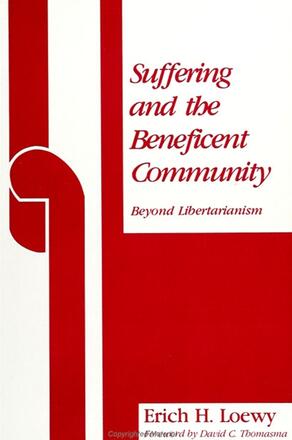
Suffering and the Beneficent Community
Beyond Libertarianism
Alternative formats available from:
Description
This book grounds ethics in the capacity for suffering shared by all sentient beings, and sees the avoidance and amelioration of suffering as the prima facie condition of moral interaction. Loewy sees social contract as originating in the original nurturing of individuals, and selfhood and autonomy as emerging in the embrace of beneficence. Communities thus have an implicit obligation to their members, which necessitates a just distribution of resources.
Erich H. Loewy is Associate Professor of Medicine at the University of Illinois, College of Medicine at Peoria, and is Associate Professor of Humanities and Associate, Graduate Faculty at the University of Illinois at Chicago.
Reviews
"Loewy's theory of suffering is new and unique, as is his theory of the community. He properly locates personal freedom within the embrace of the community and provides the basis for a major critique of autonomy.
"Currently in medical ethics and philosophy of medicine, Libertarianism is pedaled as the basis of a new kind of health professional ethics, a view opposed by a growing number of ethicists. Loewy articulates an alternate view that provides a powerful basis for caring for one another, the social warrant for medicine and health care. " — David C. Thomasma, Ph. D., Loyola University Medical Center, Stritch School of Medicine
"It provides a significant alternative to the current understanding of medical ethics and it is comprehensive in focus. The way in which the author connects his claims about suffering to claims about justice is something new. It is a refreshing alternative to a rights based approach to the questions under discussion. " — Stephen Lammers, Lafayette College